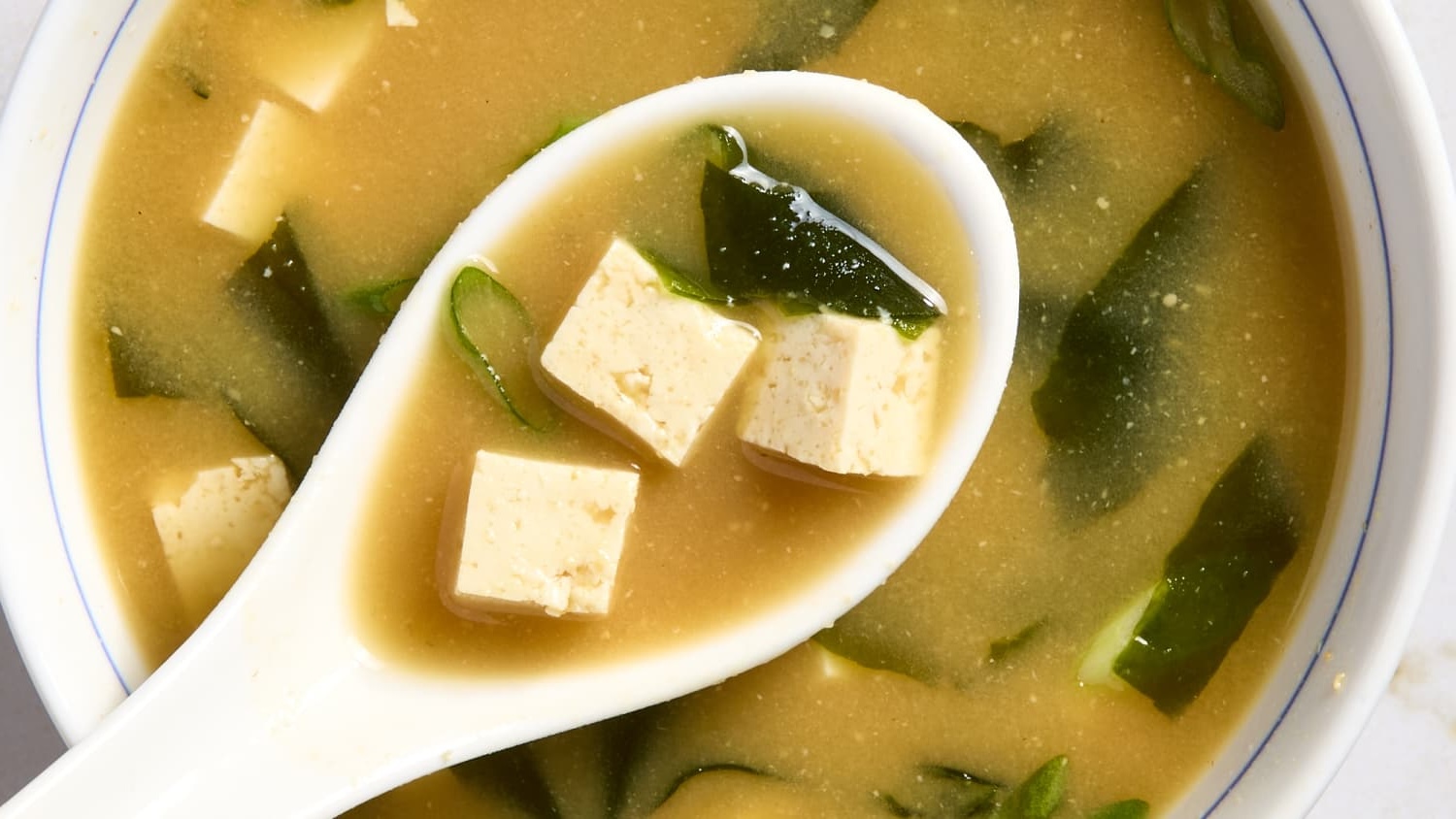
Miso soup is a staple in Japanese cuisine, known for its savory flavor and health benefits. But what exactly makes this soup so special? Miso is a fermented soybean paste that forms the base of the soup, giving it a unique umami taste. This traditional dish often includes ingredients like tofu, seaweed, and green onions, making it both nutritious and delicious. Miso soup is not just a tasty appetizer; it's packed with probiotics, vitamins, and minerals that can boost your immune system and improve digestion. Whether you're a seasoned foodie or new to Japanese cuisine, learning about miso soup can add a flavorful twist to your culinary adventures.
What is Miso?
Miso, a traditional Japanese seasoning, has been around for centuries. Made from fermented soybeans, it adds a unique umami flavor to various dishes. Let's dive into some fascinating facts about this versatile ingredient.
- Ancient Origins: Miso dates back to 700 AD in Japan, making it over 1,300 years old.
- Fermentation Process: It’s made by fermenting soybeans with salt and koji, a type of fungus.
- Variety of Types: There are over 1,000 different types of miso, varying in color, flavor, and texture.
- Regional Differences: Different regions in Japan produce distinct types of miso, reflecting local tastes and traditions.
- Nutrient-Rich: Miso is packed with vitamins, minerals, and beneficial bacteria, making it a nutritious addition to meals.
Health Benefits of Miso
Miso isn't just tasty; it’s also good for you. Here are some health benefits that might surprise you.
- Probiotic Powerhouse: The fermentation process creates probiotics, which are good for gut health.
- Rich in Antioxidants: Miso contains antioxidants that help fight free radicals in the body.
- Boosts Immune System: Regular consumption can help strengthen the immune system.
- Low in Calories: Despite its rich flavor, miso is low in calories, making it a healthy seasoning choice.
- Heart Health: Some studies suggest that miso can help lower blood pressure and reduce the risk of heart disease.
Culinary Uses of Miso
Miso’s versatility in the kitchen is unmatched. It can be used in a variety of dishes, from soups to desserts.
- Miso Soup: The most common use is in miso soup, a staple in Japanese cuisine.
- Marinades: It makes an excellent marinade for meats and fish, adding depth of flavor.
- Salad Dressings: Miso can be mixed into salad dressings for a unique twist.
- Sauces: It’s often used in sauces for vegetables and noodles.
- Desserts: Believe it or not, miso can be used in desserts like cookies and caramel for a salty-sweet flavor.
Cultural Significance of Miso
Miso holds a special place in Japanese culture and cuisine. Its importance goes beyond just being a food item.
- Traditional Breakfast: Miso soup is a traditional part of Japanese breakfast.
- Festivals: Some Japanese festivals celebrate miso and its role in their culinary heritage.
- Symbol of Longevity: In Japan, miso is often associated with longevity and good health.
- Family Recipes: Many families have their own miso recipes passed down through generations.
- Artisanal Production: Some small producers still make miso using traditional methods, preserving its cultural heritage.
Fun Facts About Miso
Miso has some quirky and fun aspects that make it even more interesting.
- Miso Ice Cream: Yes, there’s such a thing as miso-flavored ice cream!
- Miso in Space: Japanese astronauts have taken miso into space as part of their diet.
- Miso and Sake: Both miso and sake use koji in their fermentation process.
- Miso in Pop Culture: Miso has appeared in various Japanese TV shows and movies.
- Miso Museums: Japan has museums dedicated to miso, showcasing its history and production.
Environmental Impact of Miso
Miso production has an environmental aspect that’s worth noting.
- Sustainable Production: Traditional miso production is relatively low-impact and sustainable.
- Local Ingredients: Many miso producers use locally sourced ingredients, reducing their carbon footprint.
- Zero Waste: Some miso producers aim for zero waste by using every part of the soybean.
- Eco-Friendly Packaging: Increasingly, miso is being packaged in eco-friendly materials to reduce plastic waste.
Miso's Marvels
Miso isn't just a tasty ingredient; it's a nutritional powerhouse. Packed with probiotics, it supports gut health and boosts the immune system. This fermented paste, made from soybeans, rice, or barley, has been a staple in Japanese cuisine for centuries. Its rich umami flavor enhances soups, marinades, and even desserts.
Beyond its culinary uses, miso offers health benefits like reducing inflammation and improving digestion. It's also a good source of vitamins and minerals like B vitamins, vitamin K, manganese, and zinc.
Whether you're a seasoned chef or a home cook, incorporating miso into your diet can be both delicious and beneficial. So next time you're at the grocery store, grab some miso and start experimenting. Your taste buds and your body will thank you!
Was this page helpful?
Our commitment to delivering trustworthy and engaging content is at the heart of what we do. Each fact on our site is contributed by real users like you, bringing a wealth of diverse insights and information. To ensure the highest standards of accuracy and reliability, our dedicated editors meticulously review each submission. This process guarantees that the facts we share are not only fascinating but also credible. Trust in our commitment to quality and authenticity as you explore and learn with us.
